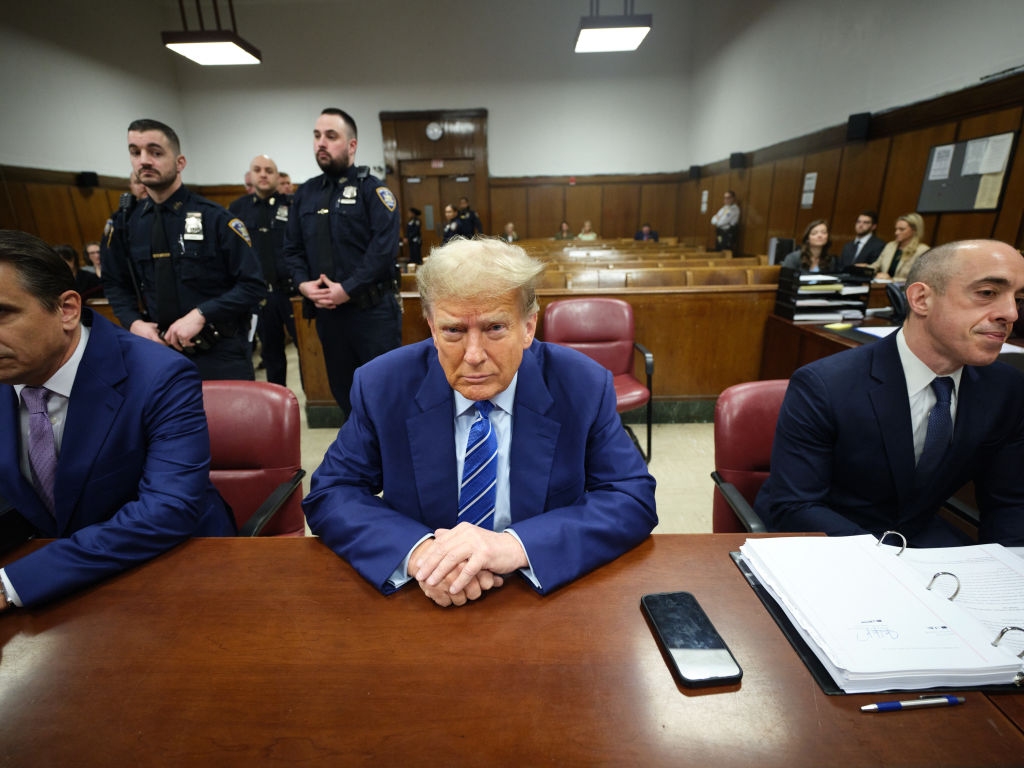A rival pair of populist and stridently anti-European Union political forces surged in Italy's parliamentary election at the expense of the country's traditional political powers, but neither gained enough support to govern alone, preliminary results showed Monday.
With no faction winning a clear majority and a hung Parliament expected, the results confirmed that negotiations to form a new government that can win a confidence vote will be long and fraught. Financial markets opened lower and were volatile in early trading Monday.
"Ungovernable Italy" headlined daily newspaper La Stampa as the early numbers rolled in.
Preliminary results released by Italy's interior ministry showed the center-right coalition winning about 37 percent of the parliamentary vote and the 5-Star Movement getting about 32 percent, with the center-left coalition far behind with 23 percent.
In an upset, the results showed the right-wing, anti-immigrant and euroskeptic League party of Matteo Salvini surpassing the longtime anchor of the center-right, the Forza Italia party of ex-Premier Silvio Berlusconi. According to the partial results, the League captured around 18 percent of the vote, while Forza Italia had less than 14 percent.
With the anti-establishment 5-Stars the highest vote-getter of any single party, the results confirmed the defeat of the two main political forces that have dominated Italian politics for decades — Forza Italia and the center-left Democrats — and the surging of populist and right-wing, euroskeptic forces that have burst onto the European scene.
"The European Union is having a bad evening," French far-right leader Marine Le Pen tweeted. British far-right, pro-Brexit campaigner Nigel Farage also congratulated the 5-Stars.
U.S. & World
Stories that affect your life across the U.S. and around the world.
The 5-Star Movement considers itself an internet-based democracy, not a party, and views established parties as a parasitic caste. Since its birth in 2009 under the auspices of comic Beppe Grillo, the 5-Stars have attracted legions of mostly young Italians who are facing few job prospects and are fed up with Italy's traditional politicians.
The 5-Stars had a remarkably strong showing in the south, which has long been a stronghold of the center-right and Forza Italia.
The 5-Stars' 31-year-old candidate to be premier, Luigi Di Maio, exulted as first projections appeared on TV screens in a Rome hotel. He jumped for joy and hugged aides.
Another 5-Star leader, Alessandro Di Battista, said other parties "will have to come to us" to negotiate, not the other way around. But in a sign of the 5-Stars' longtime aversion to forming coalitions, he warned that they only would hold such talks if those parties use the movement's methods of "transparency and correctness."
During the campaign, Di Maio backed off early 5-Star policy to push for a referendum to get Italy out of the euro-currency group. But 5-Star members, who espouse a range of ideology-defying pro-green, anti-bank views, rail against what they say are excessive EU rules.
The League, which only captured 4 percent of the national vote in the last general election in 2013, was particularly strong in the north, its traditional base. In Veneto, where it won 11 percent in 2013, it captured around 48 percent this time around.
Salvini, who never has held public office in Italy, fed public anger at the EU's inability to help handle hundreds of thousands of migrants who flooded the country in recent years after being rescued while crossing the Mediterranean Sea.
Between the League and the 5-Stars, the partial results showed that the two parties with the most euroskeptic platforms together topped the 50 percent needed to rule Italy. While the two are rivals, that scenario has been seen as the key barometer to gauge Italy's future relations with Brussels, and a "nightmare scenario" for the European Union and markets if they were to form an unlikely alliance.
Claudio Borghi of the League told Sky that the election results send a clear message to Brussels, and he didn't rule out a melding of positions with 5-Star.
"I think the will of the Italian people is very clear. The forces in favor of what Europe has done have been redimensioned," Borghi told Sky TG24. "It's a very strong message."
It will now be up to President Sergio Mattarella, a constitutional scholar, to sound out the political parties to determine who has the best chances of forming a government. The head of state has a ceremonial position that is meant to be above the political fray.
Headed to a stunning loss and potentially historic low was the Democratic Party, the main partner in the center-left government that has ruled Italy since 2013.
Agriculture Minister Maurizio Martina called the outcome "a complete defeat." The Democrats received 25 percent in 2013 and have occupied the premier's office since then.
Under former Premier Matteo Renzi's heavy-handed party leadership, the Democrats bickered and splintered, with more left-leaning elements defecting to form a smaller party. Many pundits hypothesized Renzi would have to resign as Democratic party secretary.
While before the election one possible outcome had been a grand coalition uniting the center-right and center-left, that option seemed less likely given the League's victory over Forza Italia and the utter defeat of the Democrats.
Political analyst Lorenzo Codogno of London-based LC Macro Advisors observed that a hung Parliament would make it "extremely difficult for a narrow mainstream coalition to have the numbers to govern."
Barry reported from Milan; Nicole Winfield in Rome also contributed to this report.



